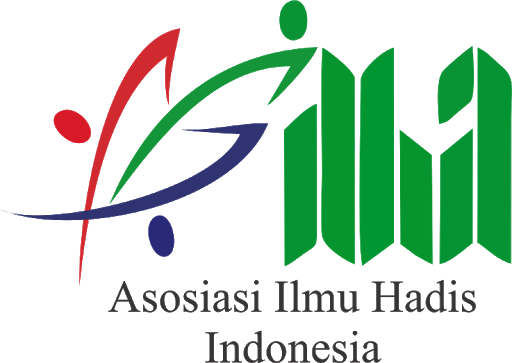Otoritas Teks Sebagai Pusat dari Praktik Umat Islam
DOI:
https://doi.org/10.14421/livinghadis.2016.1074Keywords:
teks, antropologi Islam, heterodoksiAbstract
Anthropologically speaking, interrelation between text and several practices of muslim community in Indonesia (that prove their obedience to the Islamic norms and official doctrine), is in fact heterodox. This premise verifies various elements of the local culture that always interweave and work together in dialogue through rituals and symbols. In shaping this new perspective of Anthropology of Islam, some Islamisists made claim the major tasks of ethnographers to depicts Islam with diverse expressions of meaning, emotion, as well feeling, as practiced by Muslims, whom are the object of authority and the text. This point of view shows the importance of the study of the texts in a broader ethnographic process. The role of the latter study is to strengthen the cultural anthropology of the Muslim community and at the same time discover the power and authority of the text as an interpretive resources and practices for muslim communities.
References
Abu-Lughod, Lila,Veiled Sentiments: Honor and Poetry in a Bedouin Society. Berkeley: University of California Press, 1986.
Asad, Talal, The Idea of an Anthropology of Islam. Washington, D.C.: Georgetown University Center for Contemporary Arab Studies, 1986.
_________, Genealogies of Religion; Disciplines and Reasons of Power in Christianity and Islam. Maryland: The John Hopkins University Press. . 1993.
Bowen, John. “Discursive Monotheisms.”Jurnal American Ethnologist 20(1), R. 1993. Hlm. 185- 90.
_________, Muslims through Discourse: Religion and Ritual in Gayo Society. Princeton, NJ: Princeton University Press, 1993.
_________, A New Antrophology of Islam. NY: Cambridge University Press. 2012.
Geertz, Clifford,Religion of Java. Chicago: The University of Chicago Press. 1960.
_________, Islam Observed: Religious Development in Morocco and Indonesia. Chicago: The University of Chicago Press. 1968.
el-Zein, Abdul Hamid,”Beyond Ideology and Theology: the Search for the Anthropology of Islam.” Annual Review of Anthropology, 1977.
Lukens-Bull, Ronald A., “Between Text and Practice: Considerations in the Anthropological Study of Islam”. Journal of Religious Studies, Phillips Marbourg University, Volume 4, No.2, December 1999
Mansyur, dkk. Metodologi Penelitian Living Qur’an dan Hadis. Jogjakarta: Penerbit Teras, 2007.
Metcalf, Barbara,“Living hadith in the Tablighi Jama’at”. Journal of Asian Studies 52 (3): 1993,Hlm. 584-608.
________, “Remaking ourselves: Islamic self-fashioning in a global movement of spiritual renewal”, dalam Accounting for fundamentalisms: The dynamic character of movements, editor Martin E. Marty dan R. Scott Appleby, Chicago: University of Chicago Press, 1994.
Moore-Gilbert, Bart. Postcolonial Theory: Contexts. Practices, Politics. London: Verso, 2000.
Mujiburrahman, Mengindonesiakan Islam, Jogjakarta: Pustaka Pelajar, 2008.
Qudsy, Saifuddin Zuhri,Ali Imron,Model-model Penelitian Hadis Kontemporer. Jogjakarta: Pusata Pelajar, 2013.
Redfield,Robert,Peasant Society and Culture. Chicago: University of Chicago Press, 1956.
Bulliet, Richard,Islam The View From The Edge. NY: Columbia University Press, 1994.
Said,Edward,Orientalism. New York: Random House, 1978.
Yatin,Jean-Claude,”Seduction and Sedition: Islamic Polemical Discourses in the Maghreb.” dalam William R. Roff, ed. Islam and the Political Economy of Meaning. London: Croom Helm. 1987.
Downloads
Published
Issue
Section
License
- Authors who publish with this journal agree to the following terms:
- Authors retain copyright and grant the journal right of first publication with the work simultaneously licensed under a Creative Commons Attribution License that allows others to share the work with an acknowledgement of the work's authorship and initial publication in this journal.
- Authors are able to enter into separate, additional contractual arrangements for the non-exclusive distribution of the journal's published version of the work (e.g., post it to an institutional repository or publish it in a book), with an acknowledgement of its initial publication in this journal.
- Authors are permitted and encouraged to post their work online (e.g., in institutional repositories or on their website) prior to and during the submission process, as it can lead to productive exchanges, as well as earlier and greater citation of published work.
















